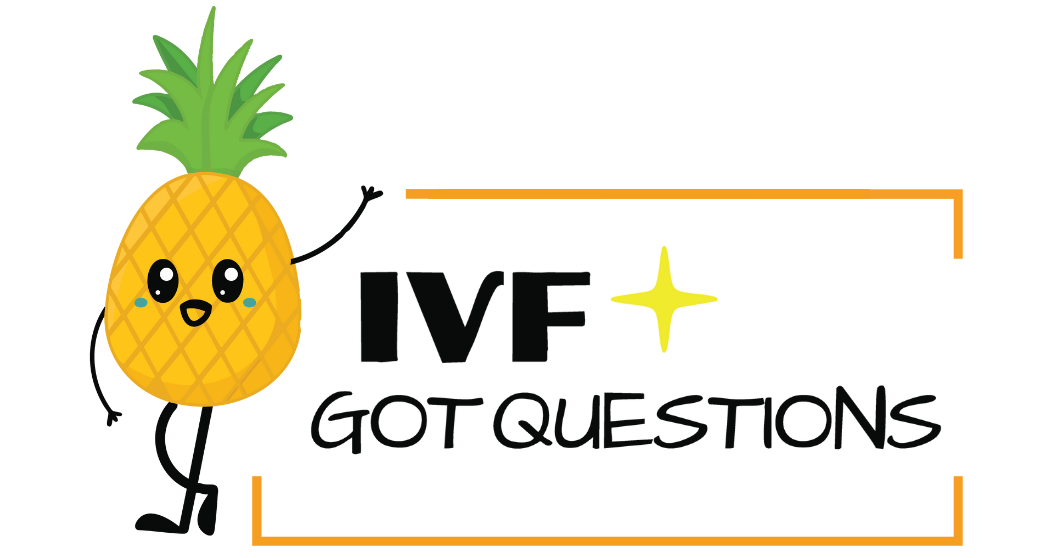IVF Got Treatment
IVF Treatment: What Does It Look Like?
Embarking on an IVF (In Vitro Fertilization) journey is a huge step. Whether you’ve been trying to conceive for a while, are dealing with infertility, or exploring IVF for other reasons, it's totally normal to feel overwhelmed. It’s a lot to take in, both physically and emotionally. Your IVF journey will be as unique as you are, but there are some common steps you can expect.
Here’s a quick overview of the typical IVF process:
-
This is where it all begins. You’ll meet with a fertility specialist who will take your medical history, talk through any challenges you’ve faced, and discuss your options.
They'll likely run some tests to assess your hormone levels, ovulation, and the health of your uterus and ovaries.
Should you choose to move forward with that doctor, they will have you fill out succession information. You (and your partner) will declare what happens to your eggs and embryos in the event of incapacitation or death.
-
Once you're cleared to start, the first "official" step of IVF is ovarian stimulation.
You’ll begin a series of hormone injections to help your ovaries produce multiple eggs. The injections will be administered at home by none other than yourself or your partner during this experience. Check out the Medications page for basic information about common medications and a link to Progyny’s step-by-step injection walk-throughs.
This part can last about 10-14 days, and you'll have frequent visits to your clinic for monitoring (ultrasounds and blood work) to track your response.
Bring a book, podcast, or playlist to your monitoring appointments. They’re often quick, but the waiting around can make the process feel like it drags. Check out the curated playlists on Spotify to bide your time!
-
Once your follicles are ready, it’s time to retrieve the eggs. This is done under light sedation, so you won’t feel much. It’s a quick process that takes around 20 minutes, but it can leave you feeling a bit crampy afterward. Your doctor should give you a list of concerning bodily responses to look out for during recovery time.
Not every egg retrieved will be viable, and sometimes, the egg quality may not be ideal. It’s frustrating, but don’t lose hope.
-
After retrieval, your eggs will be fertilized in the lab. In some cases, this might include ICSI (Intracytoplasmic Sperm Injection), where a sperm is injected directly into an egg if there are concerns about sperm quality.
-
The embryos will be cultured for a few days (typically 3-5) to see which ones develop. At this point, your fertility team will decide which embryos are the best quality to transfer into your uterus and/or freeze. Genetic testing is available for frozen embryos.
The actual transfer process is relatively simple—think of it like a Pap smear with a catheter—and doesn’t require anesthesia.
-
After the transfer, you’ll wait around two weeks for a blood test to confirm if the embryo(s) implanted successfully. Your clinic may perform two blood days, two days apart, ensuring that your HcG is doubling.
This can be the toughest part of the process emotionally, as it's a mix of hope and uncertainty.
-
Depending on your initial blood tests, you may anticipate the need for multiple cycles.
And sometimes, unexpectedly, it can take more than one IVF cycle to get the results you want, and that’s okay. Each cycle gives you new information about your body and your fertility, and with each step, you're closer to your goal.
The Emotional Journey.
IVF can be an emotional rollercoaster, and it’s totally okay to feel a range of things throughout the process. Here are a few emotions you might experience:
Excitement & Hope
Reproductive technology represents a real opportunity for many people to start or grow their families, so there’s a lot of hope involved. It’s normal to feel a rush of excitement when you begin treatment and look forward to the possibility of success.
Stress & Anxiety
With all the appointments, injections, medications, and uncertainty, stress is a very real part of IVF. Add to that the emotional highs and lows that come with the hormone treatments. It can feel like a lot to juggle all that comes with IVF along with daily life.
Frustration
If things don’t go according to plan—like if the medication doesn’t work as expected or you don’t get the number of eggs you hoped for—frustration is a completely normal feeling. It’s okay to be upset. This is tough, and you’re allowed to feel disappointed.
Hope, again.
After all of the ups and downs, there's always a chance for success, and that hope is one of the most powerful parts of the IVF experience. The truth is, every cycle is a new opportunity, and even if the first one doesn’t work, that doesn’t mean you’ve failed.
Lean on Support
IVF can feel isolating, but you don’t have to go through it alone. Whether it’s a partner, friend, counselor, or a fertility support group, lean on people who can provide emotional support. Speaking with others who are going through or have been through IVF can be incredibly helpful.
Aim for Realistic Expectations
IVF is a journey. Not everything will go according to plan. …And when I say not everything, read ‘NOT MUCH’. It’s important to stay flexible and manage your expectations—don’t let one setback define your whole experience. Celebrate steps forward, whether it’s making it through a challenging day or pursuing your next step.
Your Journey is Your Own
IVF is not a “one-size-fits-all” process. Be careful when comparing your journey to others. It’s okay to make decisions that feel right for you and your situation.
Practice Self-Care
While IVF is undeniably intense, it’s crucial to take time for yourself. Whether it’s a relaxing bath, a walk in nature, journaling, or simply saying “no” to things that drain you, don’t forget to care for your mental health. Check out the ‘Two Week Wait’ page for more ideas.
We know this journey isn’t easy. But know that IVF is a process that’s designed to give you the best shot at your dreams of building a family. No matter how long it takes or what obstacles arise, you’re strong, you’re supported, and there’s a community here for you every step of the way.

IVF is not a “one-size-fits-all” process. Take it one step at a time.
Pause.
Breathe.

